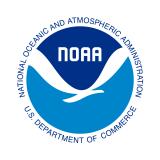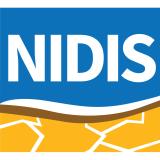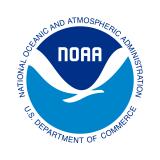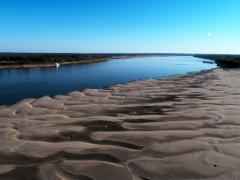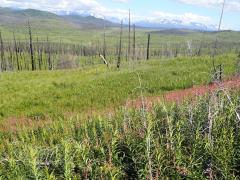Submit Abstracts for Drought Sessions Led by NIDIS & Partners at 105th AMS Annual Meeting
The American Meteorological Society is hosting its 105th annual meeting on January 12–16, 2025, in New Orleans, Louisiana. This year, the meeting will focus on the theme, "Towards a Thriving Planet: Charting the Course Across Scales."
The National Integrated Drought Information System (NIDIS) and partners are excited to co-organize two sessions during this conference:
Advances in Communicating the Risk of Drought and Cascading Hazards
- Co-organized with the Natural Hazards Center
- Joint session as part of the 20th Symposium on Societal Applications: Policy, Research, and Practice and the 39th Conference on Hydrology
- Presentations will highlight advances in research and efforts to improve messaging and communication of drought risk and its cascading hazards. Specific topics will include, but are not limited to: efforts to convey uncertainty in drought risk; case studies demonstrating successful exchange of drought risk knowledge between those researching and those responding to drought; integrating physical, biological, and social sciences in communication efforts; communicating our emerging understanding of drought in a changing climate; and tailored communication practices on drought risk for different economic sectors and decision making needs.
Advancements in Analysis and Prediction of Drought
- Co-organized with NOAA’s Physical Sciences Laboratory, the University of Kansas, and the University of Wisconsin – Madison
- Part of the 39th Conference on Hydrology
- Specific topics addressed by presenters could include, but are not limited to: current drought prediction science and skills at various lead times; advances in our understanding of the causes and characteristics of drought and impacts of land-atmosphere interactions, data analyses and numerical modeling; innovative management uses of drought science; and case studies illustrating advances in understanding, monitoring and prediction of drought and drought impacts. Further, papers identifying and/or addressing gaps and deficiencies in our current methods for predicting droughts and estimating its effects on vegetation, water and energy resources, environmental security, and the health and food security of human populations are also invited.
The call for abstracts is now open, and abstract submissions for most sessions are due by August 15, 2024 at 5 p.m. ET.
For more information, please contact Meredith Muth, NOAA/NIDIS (meredith.f.muth@noaa.gov).


